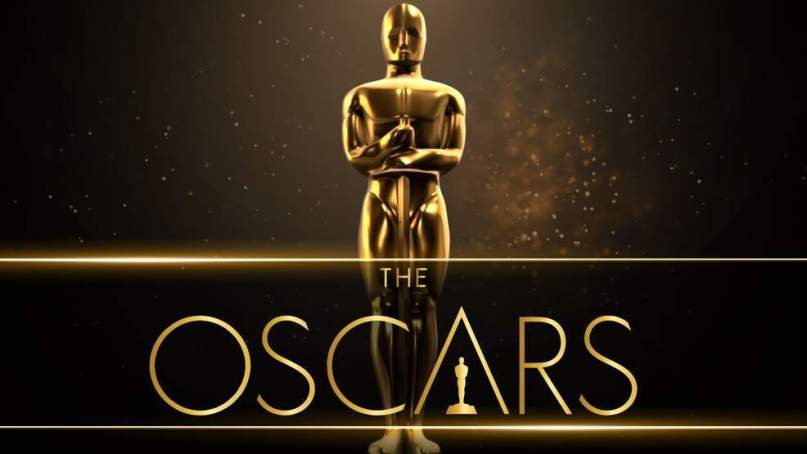This year’s Academy Awards had a pretty rocky start long before it began. Between the Kevin Hart hosting debacle (leading to this being the first year without a host), to the idea to present some awards during the commercial break, this year’s show was far from popular from the very beginning. However, like all old staples of Hollywood, the Oscars must adapt or slowly fade away into obscurity. And last night they proved the following things…
The Oscars Don’t Need a Host
Oftentimes, all the host really does is delay the first award with a cheesy but safe monologue, and then randomly interrupt and interject throughout the show for more jokes and gimmicks. But this time, the show was allowed to have a natural flow without such interruptions.

One of the biggest challenges the ceremony faces is keeping its runtime under 3 hours, and eliminating all the dead air devoted to a host is certainly a more effective method than presenting certain awards during commercial breaks.
Oscar Commercials Have Become the New Superbowl Commercials
It’s an age old tradition that the biggest football game of the year is accompanied by high end and extremely entertaining commercials. This is usually because advertisers know that ratings will be incredibly high. This year’s Oscars seemed to follow a similar format (despite their ratings being historically low recently), and the results were…strange. Google had a slew of ads that parodied famous movies like Psycho and Jerry Maguire, but with the added twist of the characters having Google.

Plus ABC tried their hardest to get us to watch their newest generic spy thriller Whiskey Cavalier, which will probably last one season if it’s lucky. If the network wasn’t so heavy handed with their slew of fake commercials that were actually just ads for the show, perhaps audiences would be more inclined to tune in. Plus, who else thought that Hennessy ad that played like a Sci-Fi epic was downright odd?
Superhero Movies Are Finally Winning Acclaim
In a genre that’s always had to fight to be taken seriously, Black Panther being nominated for 7 awards was kind of a big deal. While it wasn’t the very first award or nomination for superhero films in the past (Best Supporting Actor win for Dark Knight, Best Makeup win for Suicide Squad, and Best Adapted Screenplay nomination for Logan), it was the first time that a film in that genre was up for Best Picture and for that many awards in general. And it went on to win 3 (Best Costume Design, Production Design, and Original Score).

For comic book fans, it’s incredibly refreshing to see the category they love so much finally getting the respect it deserves. Even for those who felt that Black Panther wasn’t the best film in the MCU, its mere inclusion could bode well for the future of Marvel and other superhero films. But it wasn’t just Black Panther reaping all the glory. Spider-Man: Into the Spider-Verse managed to win Best Animated Feature, another first for the genre and category (which usually just goes to whatever Pixar made that year).
Netflix Has Been Legitimized
Not only was Netflix’s Roma included in the nominations, but it led the race with 10 and won 3 pretty significant categories (Best Foreign Language Film, Cinematography, and Director). It’s noteworthy not just for Spanish language films, but for Netflix as a legitimate film distributor. In an age when movie theater chains like AMC are fighting back against streaming, this is quite the victory for the online giant. While some directors like Christopher Nolan, David Lynch and Steven Spielberg (who has even said that Netflix films should be treated like TV movies), none of their criticism seems to matter as the Academy has given Netflix the legitimacy they’ve longed for. However, all this does is create more question about the future of the industry itself.

Awarding “Safe” Choices over Those with Something to Say
It’s no secret that the Oscars don’t necessarily represent the best in film, but some years it seems that they willingly go with the safe, uninspired choice over one that has a sharp wit and nuance. There’s nothing inherently wrong with Green Book. It’s a delightful story with two strong leads in Viggo Mortensen and Mahershala Ali. And it does try to make a point about acceptance and friendship, but it’s all too simple in its approach. It plays more like a 90’s feel good film, than a subversive and compelling story about race relations.
BlacKkKlansman tells a story with similar themes and ideas, but does so in a very different way. Rather than make the audience feel good with a false sense “everything’s been solved”, Spike Lee challenges his audience and their preconceived notions of racism, as well as what it means to fight injustice. It forces us to ponder whether the best way to bring about change is to do so from within an unjust system, or to tear the system down entirely. Lee also forces us to confront the uncomfortable reality that perhaps many of the problems of the past haven’t gone away.

Not to disparage Green Book in any way, it just seems like the Academy wanted to go with the simple safe choice instead of the one that really makes us think. It’s not the first time they’ve done this, and it probably won’t be the last. But the Oscars have managed to stay relevant for one more year. And only time will tell how they fare out in an uncertain future.




